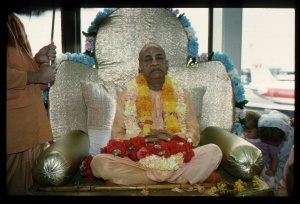CC Madhya 24.113: Difference between revisions
No edit summary |
(Vanibot #0054 edit - transform synonyms into clickable links, which search similar occurrences) |
||
| Line 17: | Line 17: | ||
<div class="synonyms"> | <div class="synonyms"> | ||
''janma haite'' | ''[//vanipedia.org/wiki/Special:VaniSearch?s=janma&tab=syno_o&ds=1 janma] [//vanipedia.org/wiki/Special:VaniSearch?s=haite&tab=syno_o&ds=1 haite]'' — from birth; ''[//vanipedia.org/wiki/Special:VaniSearch?s=śuka&tab=syno_o&ds=1 śuka]'' — Śukadeva Gosvāmī; ''[//vanipedia.org/wiki/Special:VaniSearch?s=sanaka&tab=syno_o&ds=1 sanaka]-[//vanipedia.org/wiki/Special:VaniSearch?s=ādi&tab=syno_o&ds=1 ādi]'' — the four Kumāras; ''[//vanipedia.org/wiki/Special:VaniSearch?s=brahma&tab=syno_o&ds=1 brahma]-[//vanipedia.org/wiki/Special:VaniSearch?s=maya&tab=syno_o&ds=1 maya]'' — absorbed in the thought of impersonal Brahman; ''[//vanipedia.org/wiki/Special:VaniSearch?s=kṛṣṇa&tab=syno_o&ds=1 kṛṣṇa]-[//vanipedia.org/wiki/Special:VaniSearch?s=guṇa&tab=syno_o&ds=1 guṇa]-[//vanipedia.org/wiki/Special:VaniSearch?s=ākṛṣṭa&tab=syno_o&ds=1 ākṛṣṭa]'' — attracted by the transcendental pastimes of the Lord; ''[//vanipedia.org/wiki/Special:VaniSearch?s=hañā&tab=syno_o&ds=1 hañā]'' — becoming; ''[//vanipedia.org/wiki/Special:VaniSearch?s=kṛṣṇere&tab=syno_o&ds=1 kṛṣṇere] [//vanipedia.org/wiki/Special:VaniSearch?s=bhajaya&tab=syno_o&ds=1 bhajaya]'' — worshiped Lord Kṛṣṇa. | ||
</div> | </div> | ||
Latest revision as of 23:01, 19 February 2024
Śrī Caitanya-caritāmṛta - Madhya-līlā - Chapter 24: The Sixty-One Explanations of the Atmārāma Verse

His Divine Grace
A.C. Bhaktivedanta Swami Prabhupada
A.C. Bhaktivedanta Swami Prabhupada
TEXT 113
- janma haite śuka-sanakādi 'brahmamaya'
- kṛṣṇa-guṇākṛṣṭa hañā kṛṣṇere bhajaya
SYNONYMS
janma haite — from birth; śuka — Śukadeva Gosvāmī; sanaka-ādi — the four Kumāras; brahma-maya — absorbed in the thought of impersonal Brahman; kṛṣṇa-guṇa-ākṛṣṭa — attracted by the transcendental pastimes of the Lord; hañā — becoming; kṛṣṇere bhajaya — worshiped Lord Kṛṣṇa.
TRANSLATION
"Although Śukadeva Gosvāmī and the four Kumāras were always absorbed in the thought of impersonal Brahman and were thus Brahmavādīs, they were nonetheless attracted by the transcendental pastimes and qualities of Kṛṣṇa. Therefore they later became devotees of Kṛṣṇa.